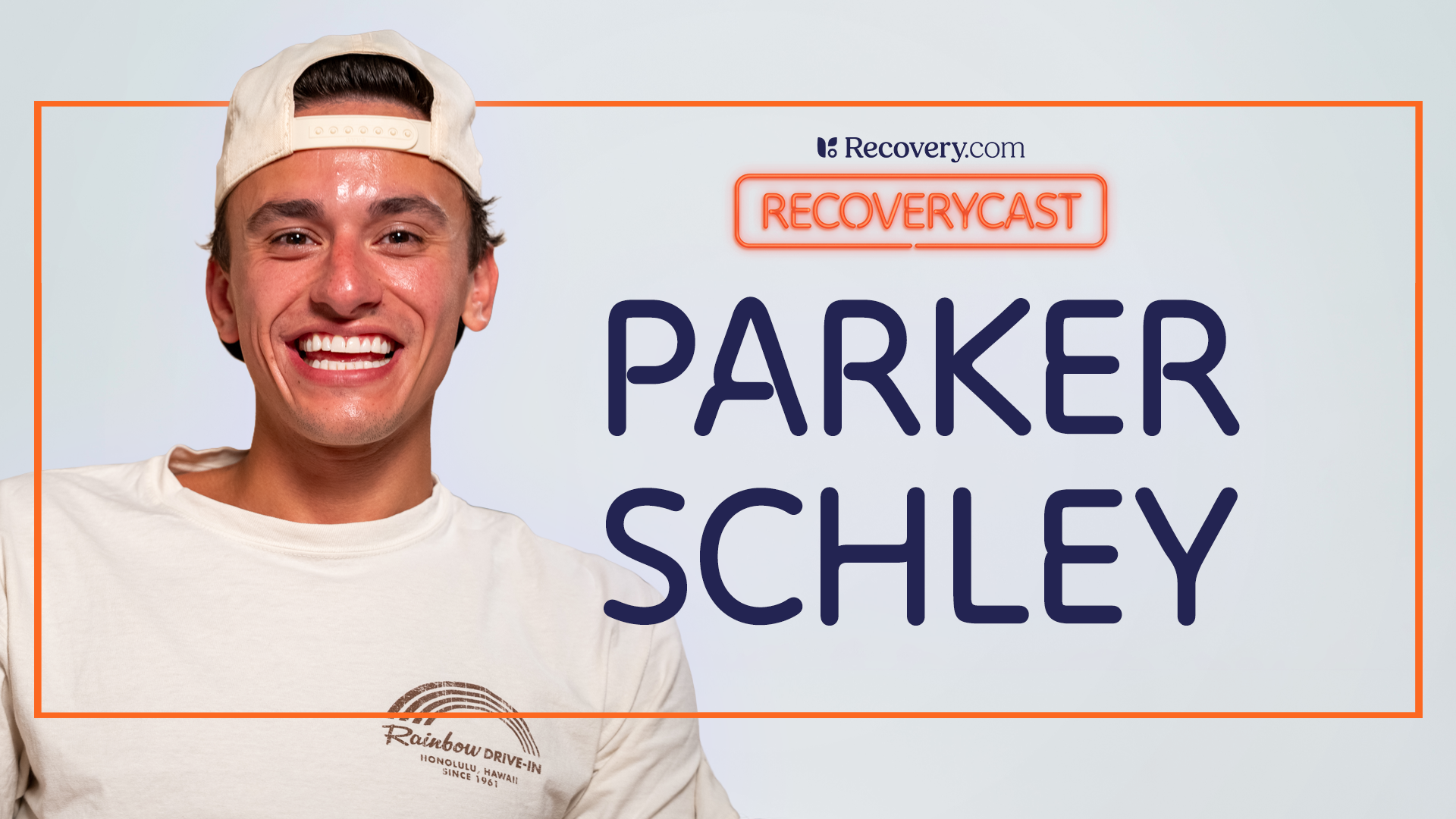Parker Schley’s Road to Recovery: 7+ Ways to Find Your Own Path to Sobriety



Table of Contents
The road to recovery is rarely a straight line. For Parker Schley, the journey was a decade-long cycle of blackouts, arrests, and tarnished relationships before he found the courage to seek help. In a candid conversation on the Recoverycast podcast, Parker opens up about his struggles with alcohol, the moment he decided to make a change, and the life-altering experience of finding sobriety. His story is a powerful reminder that addiction doesn’t discriminate and that a new life is possible, no matter how bleak things may seem.
1. The Cliché That Isn’t: You Are Not Alone
Parker’s journey began with a realization that many people in the early stages of addiction face: the feeling of isolation. He found himself silently following recovery accounts on social media, looking for a glimmer of hope that he wasn’t the only one struggling. This quiet search for community was the first step toward self-acceptance.
“I think one thing that I would hope people gain from my story is that, and it’s gonna sound so cliché, you’re not alone,” Parker shares. “Before I chose to get sober, I did the whole like silent following of a ton of people just scrolling through like, ‘Wait, maybe I do have a problem with drinking.’ I would follow people that would post about their recovery journeys. And I did realize, okay, you don’t have to be 50 plus to be an alcoholic… Alcoholism doesn’t discriminate and it can really hit anyone.”
He highlights the fact that addiction can affect anyone, regardless of age, background, or social status. By sharing his story, he hopes to break the stereotype of what an alcoholic looks like and encourage others, especially those in their twenties, to seek help. This sense of community and shared experience is a cornerstone of many recovery programs, including the 12-step program Parker is now a part of. The realization that he wasn’t a “failure of a human being” but rather a person with a disease was a transformative moment that allowed him to let go of the shame and begin his healing process.
2. Seeking a Sense of Belonging
Parker’s relationship with alcohol began at a pivotal and vulnerable time in his life. After moving from Colorado to the East Coast in high school, he found himself without friends and grappling with feelings of depression. This sense of isolation led him to seek validation and acceptance, which he initially found through alcohol.
“I felt seen,” he explains. “Like instead of being that weirdo who just moved from Colorado and didn’t have any friends, people knew who I was, people were talking about me.”
For Parker, alcohol was a tool to numb the pain of loneliness and gain social acceptance. The negative attention he received after blacking out at a party didn’t matter because it meant people were finally talking about him. This experience set him on a dangerous path, where alcohol became a crutch for social situations and a way to avoid dealing with his emotions. This is a common pattern for many people who struggle with addiction. The substance becomes a way to cope with feelings of inadequacy or anxiety, creating a cycle where the person relies on the substance to feel “normal” or accepted.
Explore Alcohol Treatment Centers
3. The High School Graduation Arrest
A pivotal moment in Parker’s life occurred on the night of his high school graduation. What should have been a celebratory milestone turned into a night spent in jail after he was arrested for getting drunk and disorderly. This event, he says, marked a turning point in his drinking, escalating it from a “touchy relationship” to a full-blown problem. Despite the severity of the situation, Parker initially blamed his circumstances on bad luck rather than his actions.
He carried this mindset through college, where his “bad luck” continued to escalate. He was put on academic probation, discovered drugs, and had multiple hospital visits. Despite the mounting evidence that his drinking was out of control, he remained in denial, telling himself that other people were doing the same things and that he just had an unfortunate series of events. This is a classic example of rationalization, a defense mechanism where a person justifies their behavior to avoid confronting the reality of their addiction.
4. Legal Trouble as a “Bad Thing”
Parker’s definition of a “bad thing” was a unique one. While many would consider repeated hospital visits and near-death experiences to be a wake-up call, for him, the true wake-up call was legal trouble. The threat of jail time and the inconvenience of court proceedings were what truly shook him.
“I would say courts, cops, and cops,” he says. “Legal trouble was my definition of bad things. ‘Cause even though I was borderline probably almost killing myself, I was like, ‘I’m only affecting me.’ But if it was a legal situation, I was like, ‘Okay, well, this could affect my job, this could affect my future.'”
This perspective highlights the insidious nature of addiction. It can warp a person’s perception of what is truly harmful. Parker was able to convince himself that his physical health was a secondary concern, but the potential consequences of legal issues were a stark and unavoidable reality. This is a pattern of denial where a person continues to push the boundaries of their addiction, setting the bar for what constitutes a problem lower and lower.
5. Breaking the Cycle: The Moment of Truth
The moment Parker decided to seek help wasn’t a dramatic rock bottom, but a simple realization that he was “sick and tired of being sick and tired.” The constant cycle of drinking, legal trouble, and emotional turmoil had finally worn him down. He made the decision to call a treatment center on his own, without any external pressure.
He shares this powerful quote about the moment he made the call: “I was like, ‘You know what? F*** it. I’ve been arrested like five times, gone the hospital like four times, tarnished all my relationships. We’ve got about no friends left. Let’s go to rehab.'”
He called an addiction treatment center and was surprised to learn they had an opening in just two days. This unexpected immediacy forced him to confront his true intentions. He had made the call as a cathartic gesture, a way to make himself feel better without having to follow through. But when faced with the real possibility of getting help, he had to make a choice: continue the destructive cycle or finally break free. This moment of decision, fueled by a genuine desire for change, was the catalyst for his recovery. His family, who had been struggling to cope with his addiction for years, were overjoyed by his decision. Parker’s father, who had been at a breaking point with their relationship, was “so happy” to hear his son was finally seeking help.
6. The Best 28 Days of His Life
Parker’s time at the treatment center was not what he expected. Instead of a difficult and painful experience, he describes it as “the best 28 days of my life.” The reason, he says, is simple: he was finally ready to get sober. Unlike previous attempts at therapy or court-mandated programs, this time was for him. He was able to fully lean into the process and focus on his own well-being.
“I think the biggest thing that I realized, and I think I got so much out of rehab, was because I was ready to get sober,” Parker says. “A lot of my dad has asked me multiple times between probably the ages of 17 to 25 when I went to rehab, ‘Do you want to go to rehab? Do you wanna go to some sort of like counseling?’… But this one I was like, ‘I’m doing this for me.'”
This is a critical point in recovery. True healing can only begin when a person is willing to do the work for themselves, not for others. The treatment center provided him with a safe space to focus on self-care, a concept that was foreign to him. He discovered a new side of himself, one that was not defined by alcohol. He found joy in journaling, connecting with others his age, and rediscovering what it meant to live a sober life.
7. Redefining Fun and Finding New Hobbies
One of the biggest challenges Parker faced in recovery was redefining what “fun” meant. For a decade, his life revolved around binge drinking. Every social activity, from hiking to going to the pool, was centered around alcohol. The idea of doing these things sober was a foreign concept.
He shares a moment of self-reflection from his drinking days: “I remember I would just sit there one time, I was all excited about like going to the pool and just ripping Coors Lights all day. And then I took a step back and was like, ‘This isn’t that fun.’ I’m just sitting here like, feel fat, have to pee every second and I’m just texting a bunch of guys that I probably shouldn’t be… you kind of have a sad life, Parker.”
In recovery, he’s learning to find joy in things he once thought were only enjoyable with alcohol. While some activities, like sitting by the pool, are still a challenge without drinking, he’s giving himself the grace to discover what he truly enjoys. He’s exploring new hobbies and reconnecting with his passions, a process he likens to peeling back layers that were once “covered in tequila and vodka.”
8. Finding Your Recovery Community
Parker’s story is a powerful testament to the importance of community and self-acceptance in recovery. He found solace in a group of guys his age at the treatment center, and they continue to be a source of support in his sobriety. This sense of belonging, which he initially sought through alcohol, is now a genuine and healthy part of his life.
His story is an inspiration for anyone who feels lost, isolated, or trapped in a cycle of addiction. It is a reminder that you are not alone, that help is available, and that a new and fulfilling life is waiting for you on the other side of recovery.
If you or someone you know is struggling with addiction, remember that help is just a phone call or a click away. You can find resources and support at Recovery.com.
Our Promise
How Is Recovery.com Different?
We believe everyone deserves access to accurate, unbiased information about mental health and recovery. That’s why we have a comprehensive set of treatment providers and don't charge for inclusion. Any center that meets our criteria can list for free. We do not and have never accepted fees for referring someone to a particular center. Providers who advertise with us must be verified by our Research Team and we clearly mark their status as advertisers.
Our goal is to help you choose the best path for your recovery. That begins with information you can trust.





